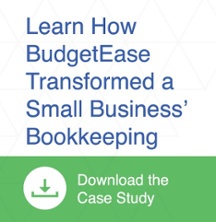
What is a Fiscal Agent?
A fiscal agent is a nonprofit organization that agrees to hold and manage funds for another group, often a grassroots organization that cannot provide three years of audited financial information required to receive many grants. By acting as a fiscal agent, the nonprofit helps these smaller groups access funding and ensures the funds are used according to the grant requirements.
Setting Up Fiscal Agency Accounts
When you become a fiscal agent, it's crucial to keep the funds for the other organization separate from your own. This can be done in two ways:
- Separate Bank Account: Open a completely separate bank account for the funds.
- Sub-Account in Financial Software: Create a sub-account within your existing bank account in your financial software to track the funds separately.
Bookkeeping for Fiscal Agents
The accounting for fiscal agency is straightforward but requires careful attention to detail. Here are the key steps:
- Recording Funds Received: When you receive funds as a fiscal agent, record the amount in the fiscal agent bank account or sub-account. The offsetting entry should be to a liability account called "Fiscal Agent Holding."
- Tracking Fund Usage: As you pay out funds for the other organization, ensure the transactions are recorded against the fiscal agent holding account. For example, if you pay out $500 for a program, reduce the fiscal agent holding account by $500.
- Avoid Misclassification: Do not categorize these transactions as your own income or expenses on the Profit and Loss. They should only affect the fiscal agent holding account, via the Balance Sheet and the corresponding bank account.
- Monthly Reconciliation: At the end of each month, reconcile the balance in the fiscal agent bank account with the fiscal agent holding account to ensure they match.
Managing Fees
Often, fiscal agent agreements allow you to take a fee for managing the account. This fee should be recorded as income for your organization. Here's how to handle it:
- Reduce the Fiscal Agent Holding Account: Decrease the amount in the fiscal agent holding account by the fee amount.
- Increase Your Income: Record the fee as income in your financial records.
- Adjust Bank Accounts: Transfer the fee amount from the fiscal agent bank account to your organization's bank account.
Handling Multiple Fiscal Agency Agreements
If you act as a fiscal agent for multiple organizations, set up a separate sub-account for each organization in your financial software. This ensures that all transactions are accurately tracked and attributed to the correct organization.
Conclusion
Being a fiscal agent is a valuable service that helps smaller organizations access funding and achieve their goals. By following these bookkeeping practices, you can manage the funds responsibly and maintain clear, accurate financial records. If you have any questions about fiscal agency, remember that the process is straightforward as long as you follow these guidelines.
If you have questions about how to set up your fiscal agent account and are looking to add to your team, a Bookkeeping firm with expertise, contact us today, we are here to help.






